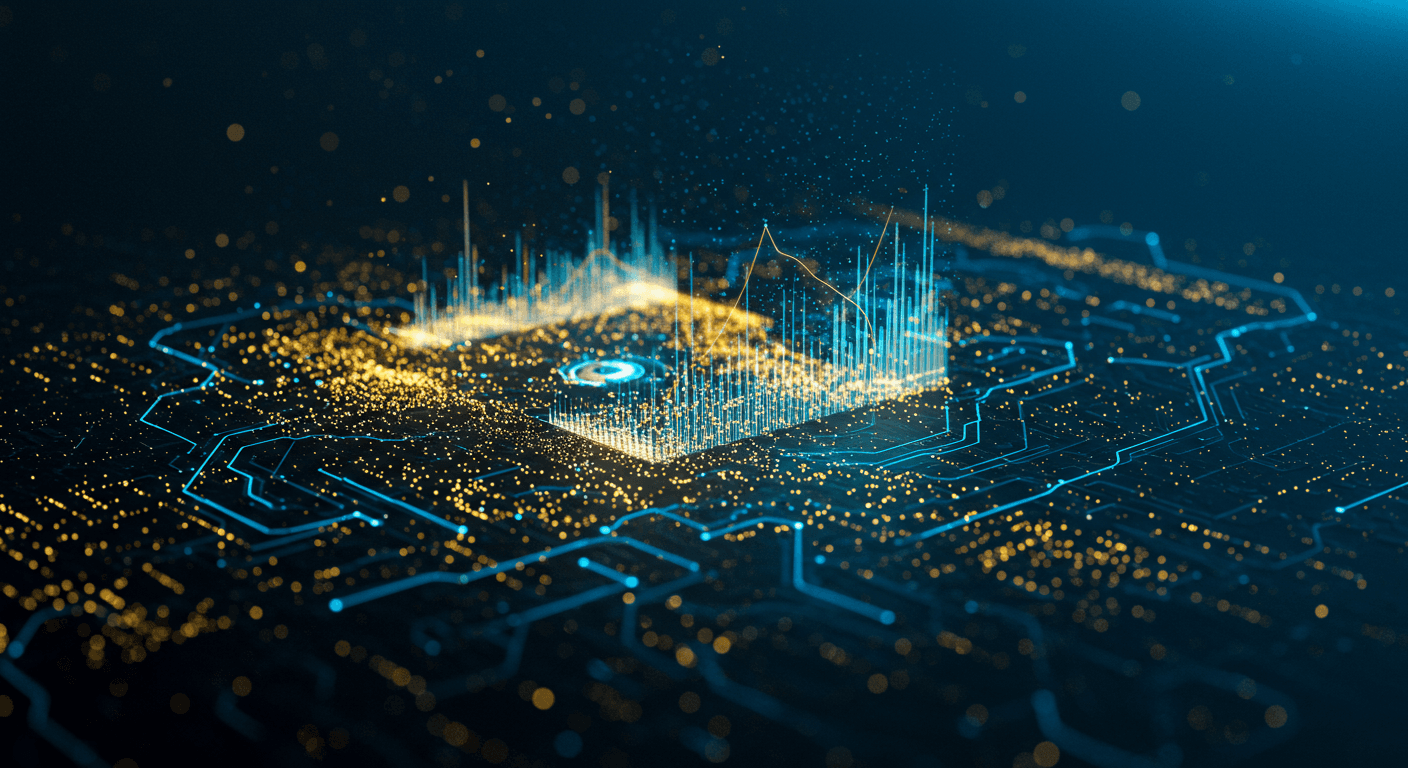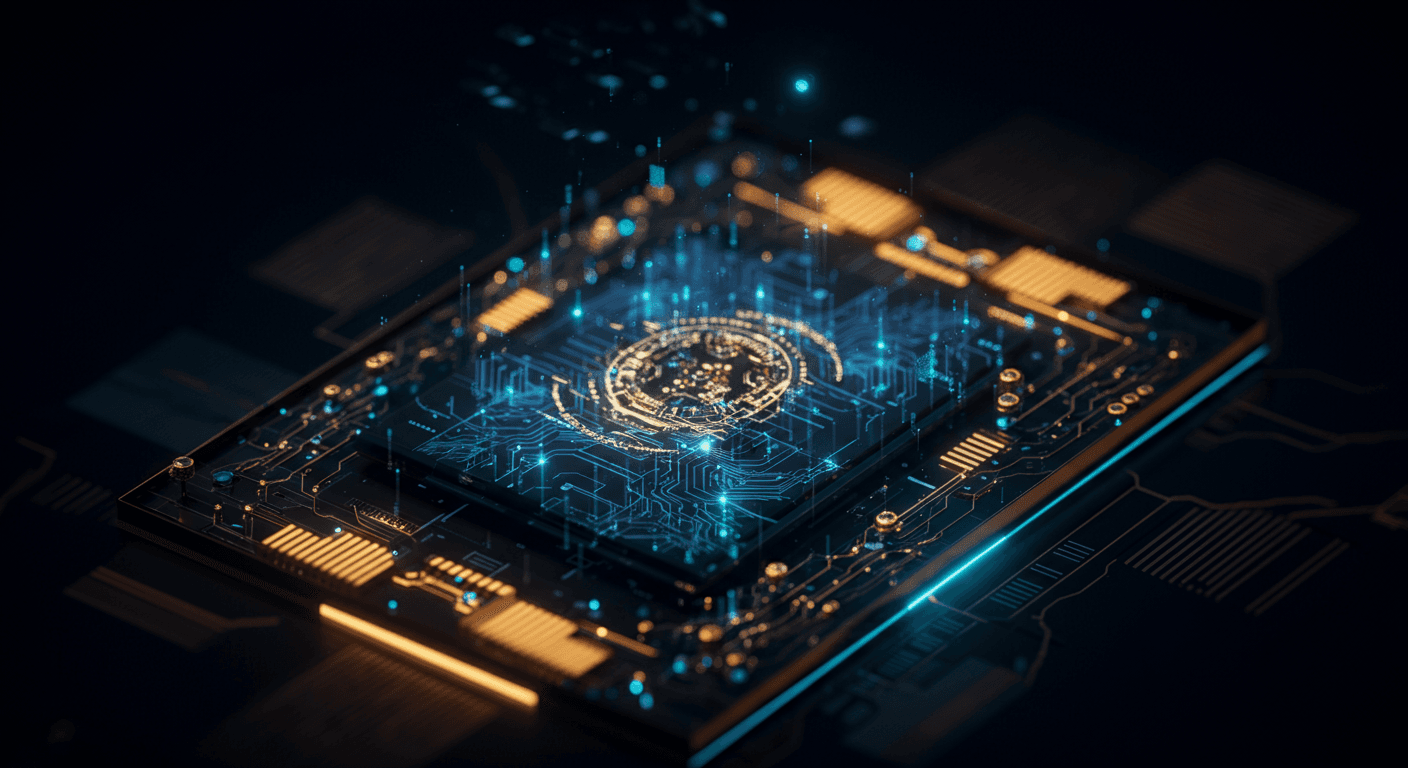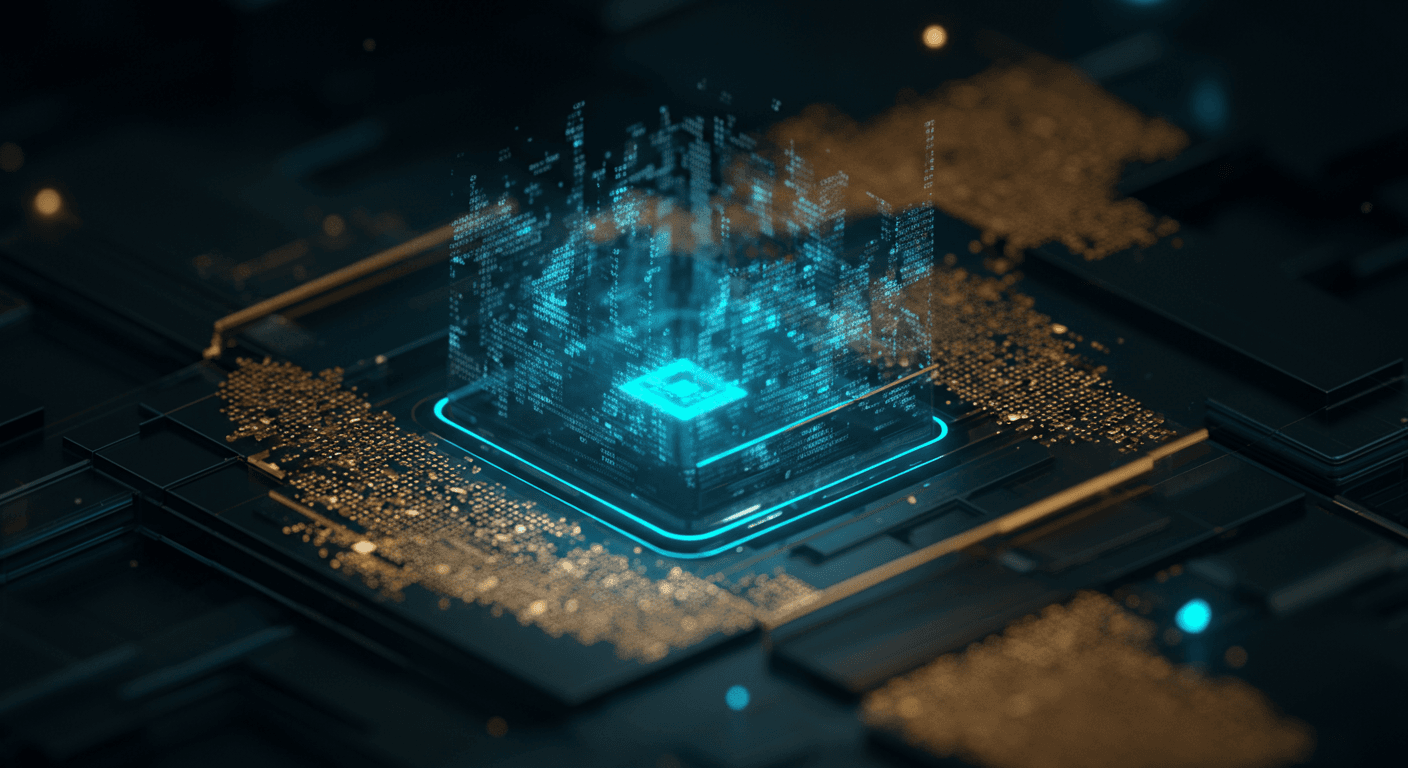Beyond Displacement: AI's True Impact on Jobs and the Skills of the Future

Navigating the future of work requires a new lens: it's not just about job losses, but a reshaping of skills and roles.
AI and the Shifting Sands of Employment: Beyond Displacement
Instead of fearing wholesale replacement, we need to understand that AI is changing how we work. Yes, some tasks will be automated, leading to displacement.
But this is a call to adapt, not panic.
Augmentation, Not Annihilation
AI isn't necessarily about replacing humans; it's about augmentation. Think of ChatGPT as an incredibly powerful research assistant, or Code Assistance AI supercharging developer productivity. This shift demands new skills:
- Prompt Engineering: Guiding AI effectively. Learn more in this Guide to Prompt Engineering.
- Critical Evaluation: Assessing AI outputs for accuracy and bias.
- Adaptability: Embracing continuous learning and skill development.
The Adaptable Professional
The most valuable asset in the age of AI will be the ability to learn and adapt. This isn't just about tech skills; it's about critical thinking, creativity, and emotional intelligence—the human qualities that AI can't replicate. Consider exploring the Learn AI Fundamentals section to get grounded.
Ultimately, the future of work isn't about humans versus AI, but humans with AI. By focusing on adaptability and continuous learning, we can turn anxiety into opportunity and shape a future where technology empowers us all. Let's get started!
AI isn't just automating tasks; it's reshaping entire professions and demanding a new skillset from us all.
Decoding the Research: A Closer Look at AI's Occupational Impact
Recent research offers insights but warrants a healthy dose of skepticism. Methodologies vary wildly, and conclusions often oversimplify complex dynamics.
- Methodology Matters: Be wary of broad generalizations. Studies using different data sets or focusing on distinct aspects of AI Learn about AI Fundamentals will inevitably yield varying outcomes.
- Example: A report focusing solely on manufacturing might highlight job losses, overlooking the boom in AI-related service roles.
Automation vs. Augmentation: A Crucial Distinction
It's not always about complete job elimination. Instead, think in terms of "task automation."
- Task-Level Changes: Many roles will evolve as AI handles routine duties, freeing up human workers for more creative and strategic work.
- Example: Marketing professionals utilizing Marketing Automation tools can focus on strategy and creative campaign design, while AI manages ad placement and analytics.
Industry and Regional Disparities
AI's impact isn't uniform.
- Sector-Specific Changes: Industries relying heavily on repetitive tasks (e.g., data entry) face higher automation potential. Consider using an AI tool for Productivity and Collaboration.
- Geographic Variations: AI adoption rates and preparedness vary across countries.
- Example: Developed nations with robust tech infrastructures might adapt faster than emerging economies.
Categorizing Job Roles by Susceptibility
Some roles are inherently more vulnerable to AI disruption than others.
| Job Category | Susceptibility | Example |
|---|---|---|
| Data Entry Clerks | High | Automated data processing software |
| Customer Service Reps | Medium | AI Chatbots handling basic inquiries |
| Software Developers | Low | AI-assisted coding, not full replacement |
| Creative Content Creators | Low | AI for inspiration/editing, not creation |
In short, the future of work isn't about a robot apocalypse, but a realignment of skills and responsibilities. Prepare to be augmented, not automated. Explore available Tools for AI Enthusiasts to get started.
The robot uprising isn't about chrome-plated automatons stealing your lunch money; it's about a seismic shift in the skills we need to thrive.
The Skills That Pay the Bills (in Bits)

AI may automate tasks, but it amplifies the need for uniquely human skills.
- Creativity: The ability to dream up novel solutions remains king. Think of AI as a collaborator, not a replacement. Need to brainstorm fresh marketing angles? Use ChatGPT to get the ball rolling, but your human spark is what makes it truly innovative. ChatGPT is an AI-powered chatbot that generates human-like responses to prompts, useful for brainstorming and content creation.
- Critical Thinking: Sifting fact from AI-generated fiction is crucial. Can you spot the logical fallacy in an AI-Writer.com article?
- Emotional Intelligence: AI doesn't understand empathy. Human connections and leadership require EQ.
- AI Ethics: As AI becomes more prevalent, being able to analyze and address its societal impacts becomes critical.
The Demand Surge: Ride the Wave
Forget the dystopian layoffs – AI is creating entirely new job categories.
- AI Engineers: The architects of intelligent systems.
- Data Scientists: The interpreters of the AI oracle.
- AI Ethicists: The moral compass of the AI revolution. The responsiblity falls on us to guide the responsible use and creation of AI.
Upskilling: Your Survival Kit
"The illiterate of the 21st century will not be those who cannot read and write, but those who cannot learn, unlearn, and relearn." - Alvin Toffler, probably updated for 2025.
How do we prepare for this new reality? Education and training are the launchpads. Explore resources like our Learn section to get started.
In short, the AI-ready workforce isn't just tech-savvy, it's future-savvy. Let's get you there, shall we? Next up, we'll dive into the...
Here's where AI's impact shifts from abstract algorithms to concrete human realities.
Beyond Tech: The Human Side of AI Implementation
AI in the workplace isn't just about automation; it's about the ethical tightrope we walk when deploying it. We're talking bias, fairness, and transparency – not just buzzwords, but fundamental considerations that shape the future of work.
The Ethics Equation
- Bias Detection: AI models trained on skewed data can perpetuate and amplify existing inequalities. For instance, a hiring AI might inadvertently favor candidates with traditionally "male" names if that's what its training data reflects.
- Fairness Algorithms: Ensuring equitable outcomes requires careful design and continuous monitoring. Software Developer Tools need to be developed with diverse teams and datasets to mitigate bias.
- Transparency Imperative: Workers deserve to understand how AI affects their roles.
Mitigation Strategies
- Retraining Initiatives: Upskilling programs are crucial to prepare workers for new roles in an AI-driven economy. Think of it as transitioning from horse-drawn carriages to automobiles – new skills are needed.
- Job Creation: AI can also spawn new opportunities. The rise of Prompt Engineering as a profession is a prime example.
- Government and Industry Collaboration: A concerted effort from both sectors is needed to fund education, support innovation, and establish ethical guidelines.
A Future of Collaboration
The future of work hinges on a collaborative approach. AI isn't meant to replace us entirely, but rather to augment our capabilities. By prioritizing responsible implementation, investing in retraining, and fostering open dialogue, we can ensure a just and equitable transition to an AI-driven future. If we are going to use these new tools, let's utilize Design AI Tools to develop a more sustainable AI ecosystem.Here's how AI is augmenting not replacing us, proven with compelling case studies.
Case Studies: AI Success Stories – Augmentation in Action
The doomsayers predicted robots would snatch our jobs, but the reality is far more nuanced – and exciting. AI is proving to be a powerful tool for augmentation, not displacement. Let's peek into some real-world success stories.
Automating the Mundane, Freeing the Mind
Imagine spending less time on tedious tasks. That's the AI promise delivered.
- Customer Service: Companies are deploying AI-powered chatbots like 247ai to handle routine inquiries, freeing up human agents to tackle complex issues and build rapport. Think fewer hold times and happier customers!
- Data Entry: Astableai automates data entry, reducing errors and saving countless hours for finance and operations teams.
- Content Creation: Marketing teams leverage CopyAI to generate initial drafts of blog posts, ad copy, and social media updates, sparking creativity and accelerating content pipelines.
AI-Powered Skill Boosters
AI isn't just automating tasks; it's actively helping us get better at our jobs.
- Coding Assistance: Tools like GitHub Copilot provide real-time code suggestions and auto-completion, accelerating development cycles and reducing errors for software developers.
- Design AI: Canva Magic Studio offering features like magic eraser and expand empowers users with new design capabilities.
Quantifiable Business Benefits
The impact of AI extends beyond individual productivity to drive tangible business value.
| Metric | Before AI | After AI |
|---|---|---|
| Customer Satisfaction | 75% | 90% |
| Process Efficiency | 60% | 85% |
| Innovation Output | 5 projects/year | 12 projects/year |
These examples are the rule, not the exception and underscore the point: AI is not about replacing humans, but about empowering them to achieve more.
AI success stories are proof that the future of work is about collaboration, innovation, and continuous learning. Read more about AI in Practice to find new ways of integrating AI into your workflows.
Navigating the Uncertainty: Practical Steps for Individuals and Organizations
The rise of AI isn't about robots stealing jobs; it’s about a fundamental shift in the skills required to thrive in the modern workplace.
Future-Proofing Your Career: The Individual's Guide

For individuals, the key is proactive adaptation:
- Continuous Learning: The tech landscape evolves faster than a speeding photon, so lifelong learning isn't optional, it's essential. Explore platforms like Coursera or Brilliant to upskill. Consider free resources for AI Fundamentals or specialized fields like Prompt Engineering.
- Networking: Build relationships with professionals in your field and beyond. Attend industry events (virtual or in-person), join online communities, and actively participate in discussions.
Responsible AI Implementation: A Guide for Organizations
Organizations must adopt responsible and ethical AI practices:
Employee Engagement: Involve employees in AI implementation from the start. Address their concerns, answer their questions, and demonstrate how AI can augment* their work, not replace them.
- Training Programs: Invest in comprehensive training programs that equip employees with the skills they need to work effectively alongside AI. Provide easy paths to Learn.
- Reskilling Initiatives: Offer opportunities for employees to reskill and transition into new roles that leverage AI. This might involve internal training programs, tuition reimbursement, or partnerships with external educational institutions.
Experimentation and Innovation
Embrace experimentation and innovation. Encourage employees to explore how AI can transform their work, streamline processes, and unlock new opportunities. Use AI Tool Directory and don't fear failure – it's a valuable learning opportunity.
Investing in an AI-ready workforce isn't just a cost; it's a long-term investment in your organization's future. Let’s explore the Top 100 AI tools to transform tomorrow, today.
It's time to trade the science fiction of AI job displacement for the reality of human-AI partnerships.
The Power of "And"
Forget the narrative of robots replacing us. The future isn't about "either/or," it’s about "and." We're talking about a symphony of collaboration where human ingenuity and AI's computational prowess harmonize.
Think of it like this: AI handles the complex calculations, while humans orchestrate the symphony.
Innovation Multiplied
- Solving the Unsolvable: Remember those intractable problems we've been wrestling with? By combining human intuition with AI's analytical capabilities, we can unlock innovative solutions. Imagine scientists using AI in scientific research to accelerate drug discovery.
- Economic Opportunity for All: AI tools for entrepreneurs will lower barriers to entry, fostering a surge in innovation and economic growth that benefits everyone, not just large corporations.
Human Skills in the Driver's Seat
While AI excels at processing data and automating tasks, human skills remain indispensable:
- Creativity: Humans will guide AI's development and deployment, ensuring it aligns with human values.
- Empathy: Understanding and responding to human emotions will be crucial in designing AI systems that are beneficial and ethical.
- Critical Thinking: As AI becomes more powerful, the ability to evaluate its outputs and make informed decisions will be more important than ever. You can learn AI fundamentals and be a responsible user.
Empowering, Not Replacing
AI is a tool, like a telescope for our minds, expanding our capabilities and enabling us to reach new heights of achievement. It's up to us to ensure that AI serves humanity, not the other way around. Now THAT’s something worth investing in, wouldn’t you agree?
Keywords
AI job displacement, AI job creation, future of work, AI impact on employment, AI skills gap, AI and automation, jobs at risk from AI, AI occupational impact, adapting to AI in the workplace, AI workforce transformation, AI upskilling, AI reskilling, responsible AI implementation, AI career paths
Hashtags
#AIandJobs #FutureofWork #AIDisplacement #AISkillset #ResponsibleAI
Recommended AI tools
ChatGPT
Conversational AI
AI research, productivity, and conversation—smarter thinking, deeper insights.
Sora
Video Generation
Create stunning, realistic videos & audio from text, images, or video—remix and collaborate with Sora 2, OpenAI’s advanced generative app.
Google Gemini
Conversational AI
Your everyday Google AI assistant for creativity, research, and productivity
Perplexity
Search & Discovery
Clear answers from reliable sources, powered by AI.
Cursor
Code Assistance
The AI code editor that understands your entire codebase
DeepSeek
Conversational AI
Efficient open-weight AI models for advanced reasoning and research
About the Author

Written by
Dr. William Bobos
Dr. William Bobos (known as 'Dr. Bob') is a long-time AI expert focused on practical evaluations of AI tools and frameworks. He frequently tests new releases, reads academic papers, and tracks industry news to translate breakthroughs into real-world use. At Best AI Tools, he curates clear, actionable insights for builders, researchers, and decision-makers.
More from Dr.Was this article helpful?
Found outdated info or have suggestions? Let us know!


